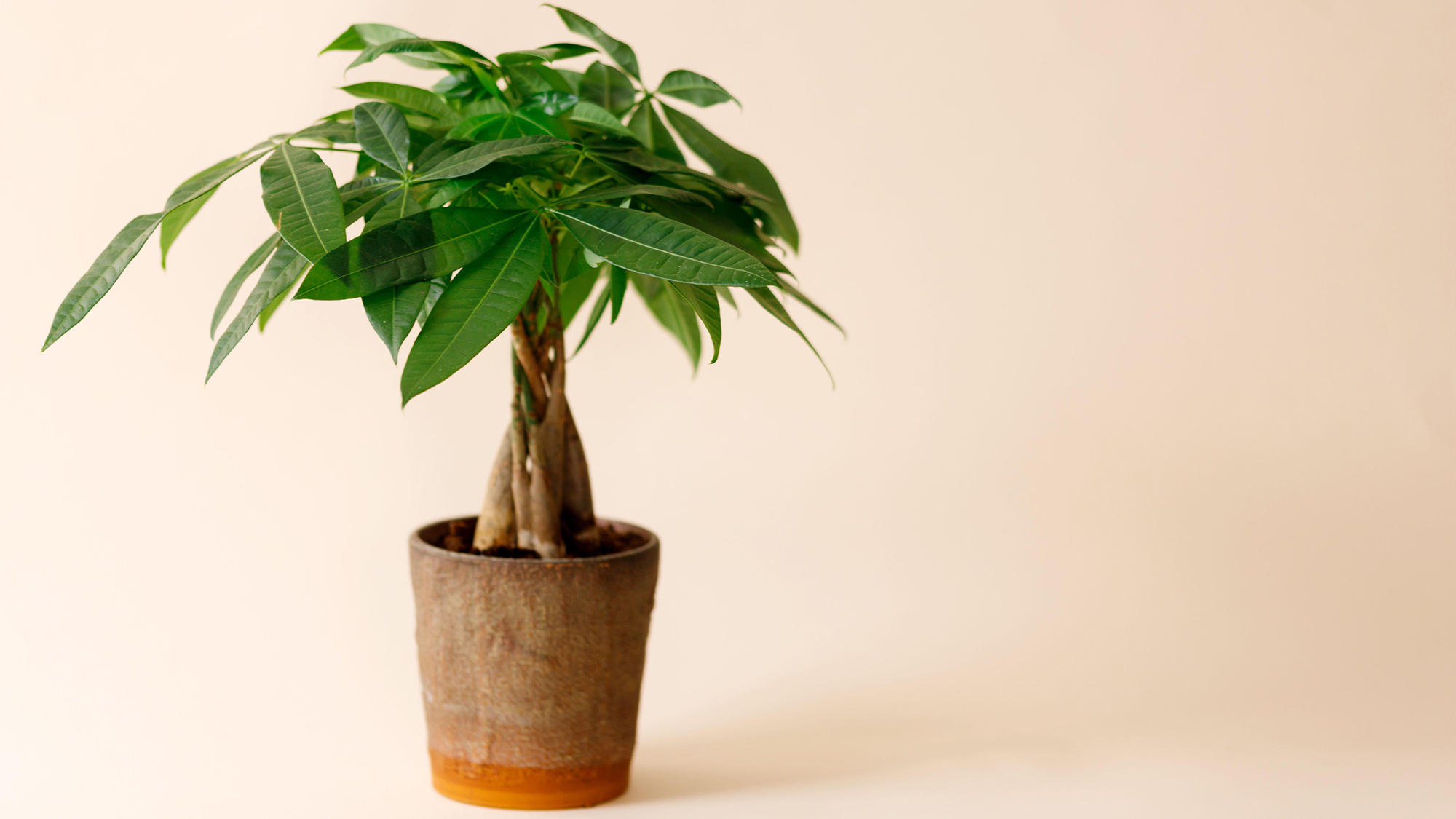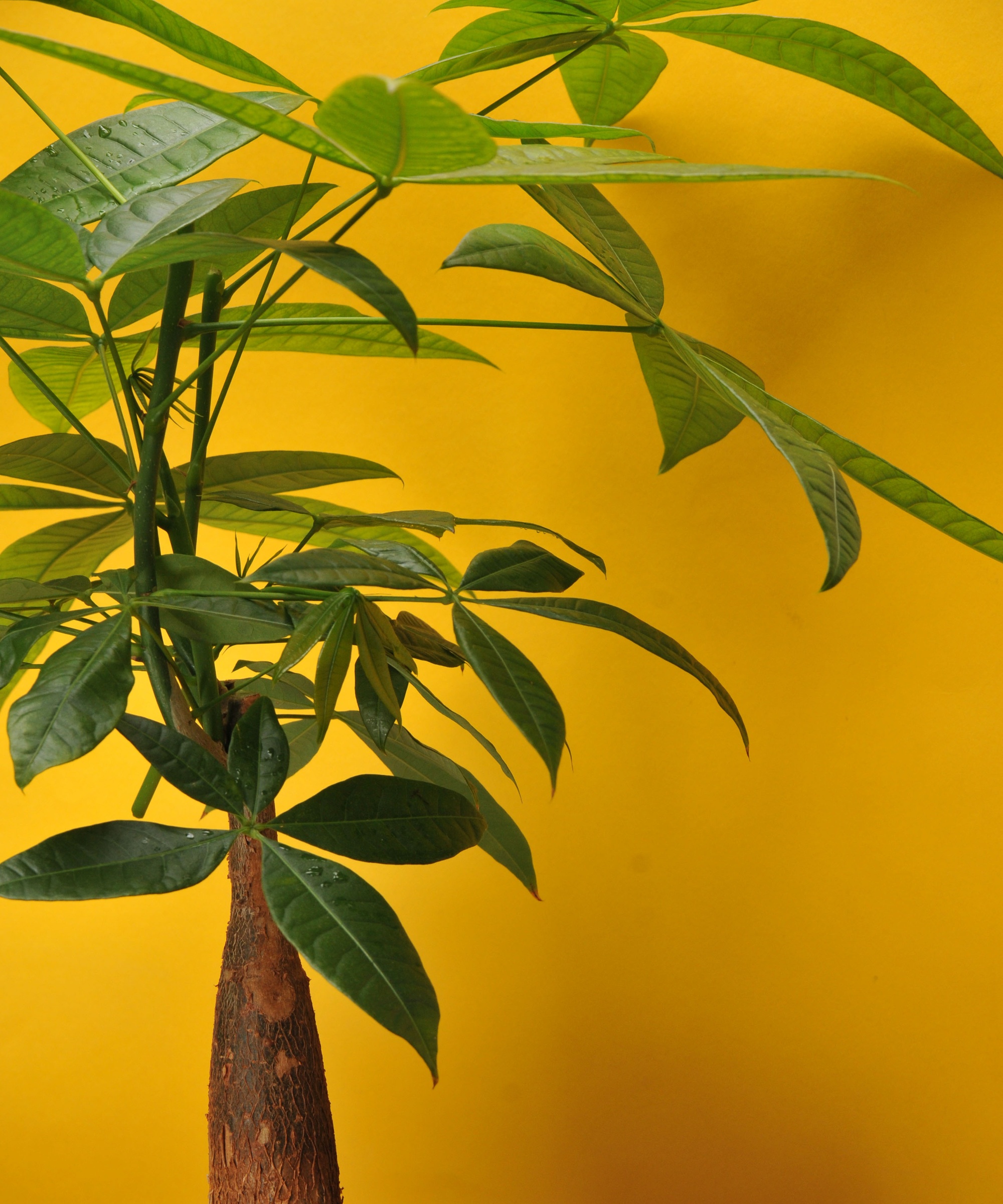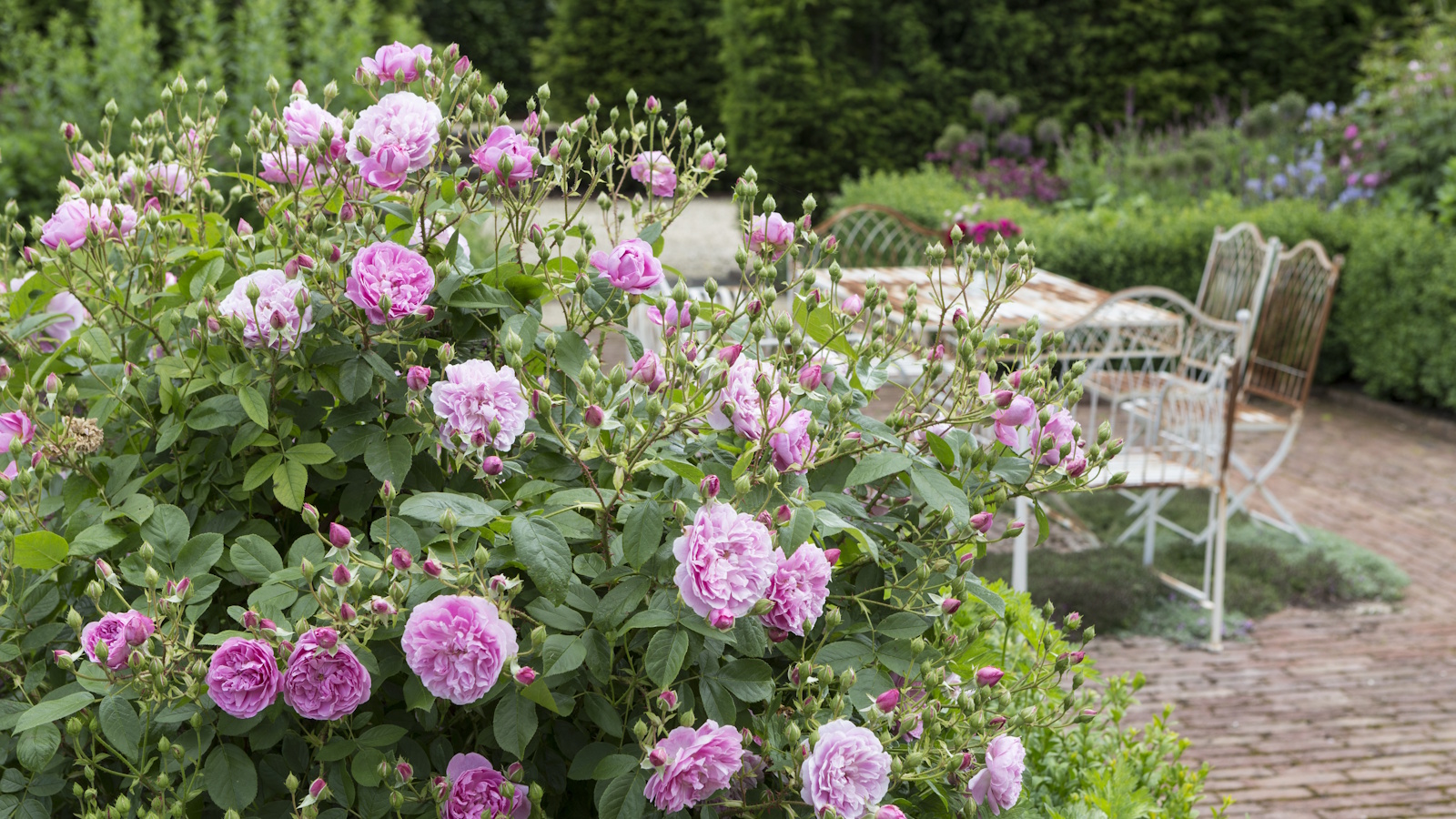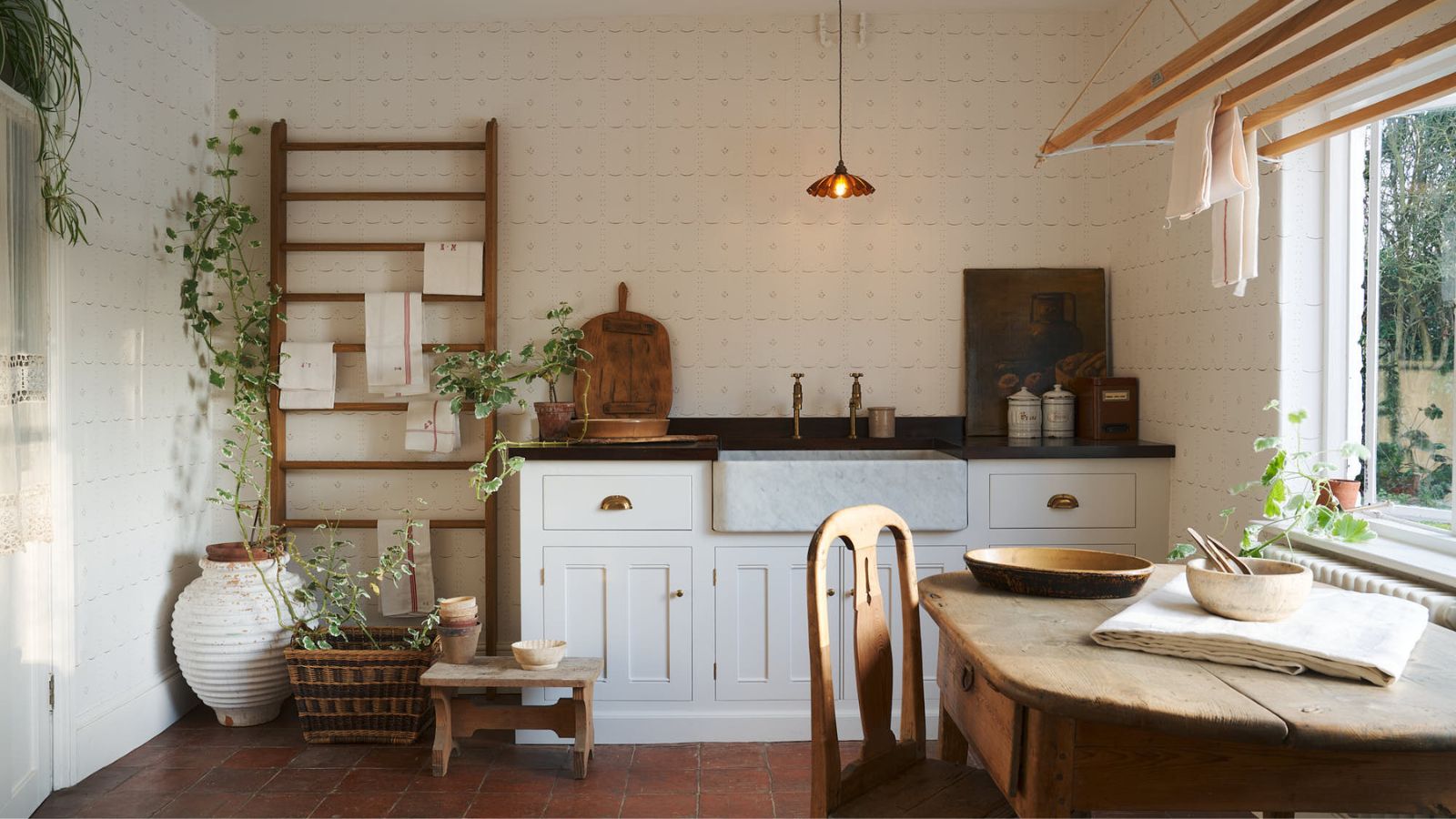Why are my money tree leaves turning yellow? Experts share the explanations and the cures
Discover the reasons why money tree leaves turn yellow, and what to do if your plant is ailing – from the experts


Money tree leaves turning yellow are a sign that your plant isn’t happy. Pachira aquatica should have glossy green leaves, and if this isn’t the case, something has gone wrong.
The money tree is among the best indoor plants, and a favorite in Feng Shui as it’s said to bring wealth and good fortune. Growing as tall as 3 to 6 feet, it can be a fantastic feature of any room, but even if a small plant isn’t thriving as it should, you’ll notice.
We asked the experts to provide the lowdown on why money tree leaves turn yellow – plus explain what to do if this happens so you can make your plant happy and healthy once more.
3 reasons why money tree leaves turn yellow
Get money tree care right, and this tropical plant can thrive in your home and look great – after all, it is one of the best indoor trees. But there are some possible errors when it comes to looking after a money tree that can result in yellow leaves.
This is what can go wrong, and how you can come to the rescue of a plant whose leaves are turning yellow. Leaves falling off? Find out why a money tree loses leaves instead.

1. Lack of light
Lack of light is often the cause when money tree leaves turn yellow, according to indoor plant expert Vladan Nikolic of Mr Houseplant. ‘Insufficient light will turn the leaves of your money tree yellow,’ he says.
‘This happens because the plant can only support a certain amount of leaves with the amount of light that it has. If your money tree isn’t getting enough light, it won’t have the energy to support all leaves, so older leaves will turn yellow and die. To prevent this, give your plant plenty of bright, indirect light. If you can’t meet its light requirements with natural light, consider buying a grow light.’
Note that too much direct sunlight can cause a problem but leaves won’t be yellow. ‘The leaves of a money tree plant that hasn’t been properly acclimated to direct sunlight will be burnt and turn brown,’ says Vladan. ‘Sun-damaged leaves can also bleach out and become pale.
‘To prevent sunburn, give your money tree plenty of bright, indirect light, and gradually acclimate it to direct sunlight,’ he recommends.
2. Under or overwatering
Fail to meet a money plant’s water requirements and leaves can yellow. ‘Overwatering can cause a money tree’s leaves to turn yellow, leading to root rot and depriving the plant of oxygen,’ explains plant expert Stephen Webb of Garden’s Whisper.
‘When you water the money tree too frequently or use too much water at once, the roots can become waterlogged, making it difficult for them to breathe correctly. As a result, the leaves start to turn yellow, and the plant’s overall health deteriorates.
‘To avoid this let the top inch or two of the soil dry out before watering again. Stick your finger into the soil; if it feels dry at that depth, it’s time to water. When you do water, give the plant a thorough soak, allowing the water to reach the roots properly. Allow any excess water to drain so the roots don’t sit in standing water.’
Think soil, too. ‘It’s essential to use a good potting mix with large particle amendments, such as perlite, to improve drainage and aeration of the soil,’ says Vladan Nikolic. ‘You should also use a pot with drainage holes, so any excess water can flow out.’
Bear in mind that underwatering can also cause a problem, so be aware of how often to water a money tree and use the technique above to get it right.
3. Pests
The presence of pests can result in yellow leaves. ‘Pests that can turn a money tree’s leaves yellow include spider mites, mealybugs, and aphids,’ says Stephen Webb. ‘These pesky critters can suck the plant’s sap, causing the leaves to lose their natural green color and become yellow or discolored. Moreover, they may leave behind a sticky residue or webs, which can further harm the plant.
‘To deal with these pests, you’ll want to take action promptly. Start by isolating the affected money tree from other plants to prevent the infestation from spreading. Next, inspect the leaves and stems closely to identify the specific pest. Once you’ve pinpointed the culprit, you can try different methods to control them. For example, you might gently wipe the leaves with a damp cloth to remove the pests physically. Alternatively, using a mild insecticidal soap or neem oil spray can help combat the infestation. Regularly inspecting your plant and acting quickly can prevent the problem from becoming severe.’
Should you remove yellow leaves from a money tree?
If your money tree has yellow leaves, you should get rid of them. ‘Remove yellow leaves from a money tree to promote its health and aesthetics,’ says plant expert Stephen Webb. ‘Yellow leaves are a sign of stress, and they won't recover on their own. Leaving them on the plant can drain valuable energy and nutrients from the healthy parts of the tree.
‘To properly remove yellow leaves, follow this simple procedure. First, identify the affected leaves and trace their stems back to the main branch. Then, using clean and sharp pruning shears, make a clean cut as close to the main branch as possible without damaging it. Dispose of the yellow leaves away from other plants to prevent pests or diseases from spreading. Regularly inspect your money tree for new yellowing leaves and repeat the process.’
Over or underwatering are frequent reasons why money tree leaves turn yellow, but if you don’t like the idea of putting your finger in the soil to check, try this trick from Vladan Nikolic. ‘The easiest way to know when to water your plant is to use a chopstick,’ he says. ‘Take one and stick it into the soil, all the way to the bottom of the pot. Pull the chopstick out and if the top 2 inches are fully dry, without any soil stuck on them, water your plant.’
Sign up to the Homes & Gardens newsletter
Design expertise in your inbox – from inspiring decorating ideas and beautiful celebrity homes to practical gardening advice and shopping round-ups.

Sarah is a freelance journalist and editor. Previously executive editor of Ideal Home, she’s specialized in interiors, property and gardens for over 20 years, and covers interior design, house design, gardens, and cleaning and organizing a home for Homes & Gardens. She’s written for websites, including Houzz, Channel 4’s flagship website, 4Homes, and Future’s T3; national newspapers, including The Guardian; and magazines including Future’s Country Homes & Interiors, Homebuilding & Renovating, Period Living, and Style at Home, as well as House Beautiful, Good Homes, Grand Designs, Homes & Antiques, LandLove and The English Home among others. It’s no big surprise that she likes to put what she writes about into practice, and is a serial house renovator.
-
 How to weed a garden quickly – professional gardeners reveal the five-minute weeding jobs to do now and get your yard summer-ready
How to weed a garden quickly – professional gardeners reveal the five-minute weeding jobs to do now and get your yard summer-readyShort on time? These time-efficient tasks will keep on top of problem plants
By Thomas Rutter
-
 Suddenly, every stylish room has this one simple piece of furniture in common – why designers are loving the versatility of the humble stool
Suddenly, every stylish room has this one simple piece of furniture in common – why designers are loving the versatility of the humble stoolBehold, the humble stool. A welcome addition to any room, stools are a much-loved household essential that interior designers love for these 5 reasons
By Eleanor Richardson